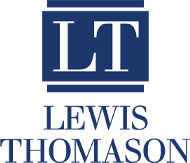The economic loss rule bars tort claims arising under construction contracts negotiated between sophisticated commercial entities.
For years, the economic loss rule (or economic loss doctrine) has applied to limit a claimant to its contractual remedies and bar tort claims for purely economic loss. In fact, the Tennessee Supreme Court recently held in Milan Supply Chain Sols. v. Navistar that: “[W]hen… a fraud claim seeks recovery of only economic losses and is premised solely on misrepresentations or nondisclosures about the quality [or character] of goods that are the subject of a contract between sophisticated parties, the economic loss doctrine applies.”[1]
In its August 2021 Milan opinion, the Supreme Court adopted this “narrow fraud exception” to the economic loss rule and reiterated that it has never applied the economic loss doctrine outside of the products liability context.[2] This appeared consistent with prior holdings in Tennessee construction cases that the economic loss doctrine does not extent to contracts for the provision of services.[3]
However, the Tennessee Court of Appeals in Commercial Painting Co. v. Weitz Co. LLC has specifically broadened the economic loss rule to commercial construction contracts—citing Milan and holding that “the Tennessee Supreme Court’s reasons for adopting a limited fraud exception to the economic loss rule apply with equal force outside the products liability context when the contract at issue was negotiated between sophisticated commercial entities.”[4]
The Court’s rationale is that courts should not “disrupt parties’ allocation of risk,” especially in the construction contract context, as “contracts of this type are typically negotiated to have specific provisions detailing the allocations of risks and specifying remedies.”[5] Furthermore, Tennessee law favors the freedom of contract, and contract law is sufficient to make wronged parties whole; if a party is suing to recover the benefit of its contractual bargain, it is not inherently unfair to bar tort claims (and allow parties to proceed under a breach of contract claim). For example, parties can still seek and recover expectation damages, rescission of the contract, etc. Furthermore, if a party is worried that expectation damages (i.e., receiving the expected benefit of the bargain) are insufficient, then the party can bargain for liquidated damages.
Here, the drywall subcontractor did not bargain for punitive damages—its subcontract with the general contractor contained a waiver of any anticipatory profit or indirect, special, consequential, or punitive damages, as well as interest (only recovery of the Subcontract Sum and attorney’s fees was allowed). The Court reasoned that it would be “problematic for a court to make a better contract for them than the one they negotiated—by importing tort remedies into the deal.”[6] Parties to a commercial construction contract are free to negotiate exceptional contract remedies as they see fit, but Tennessee law prevents courts from rewriting contracts of parties for foolhardy or dissatisfied parties.
Both parties were sophisticated commercial business entities whose contract was drafted after negotiation and investigation by the parties. The misrepresentations at issue—i.e., that the GC intended to make false representations about the length of time the subcontractor would have to perform its work or the amount of work the required by the subcontract—clearly involved the subject matter of the subcontract. The subcontract covered issues of time, duration, and scope of work. The damage that allegedly resulted from the GC’s tortious conduct completely overlapped with the damage that resulted from the GC’s breach of contract; “indeed, Commercial Painting insist[ed] in this appeal that a single damage calculation included in an exhibit is proof of the damage that resulted from all the various causes of action that it asserts.”[7]
Since the economic loss rule was applicable, the subcontractor was limited to its own contract remedies—the agreed Subcontract Sum (and attorney’s fees where it prevailed in a proceeding to recover that amount). The subcontract had waived certain types of damages and remedies, including punitive damages, which the subcontractor sought to recover under tort law. As a result, the $3.9M in punitive damages awarded at trial were reversed. The fraud/intentional misrepresentation claim, which provided the avenue for punitive damages, was barred and dismissed. The reality is that the subcontractor was suing to recover the benefit of its bargain, and the roughly $1.7M the jury awarded the subcontractor at trial for compensatory damages for the GC’s breach of contract was affirmed.
The subcontractor argued that even if the fraud claim was dismissed, punitive damages were available for its breach of contract claim. The court disagreed and reasoned that “limitations on liability are not disfavored in Tennessee” and that “limiting parties to their agreed upon contractual remedies is the very purpose of the economic loss rule when applicable to a situation that is governed by a contract. And, when the rule is applicable, this limitation applies even where fraud is present if the contract is between sophisticated commercial entities and results in only economic losses, as is the case here.”[8]
Essentially, allowing punitive damages under a breach of contract theory would negate the entire purpose of the economic loss rule as it applied in this specific case. The court also found that the subcontract waived pre- and post-judgment interest, so those damages were also reversed, as well as the portion of attorney’s fees the subcontractor had previously been awarded that did not relate to the upheld compensatory damages.
What’s the takeaway from all of this? Limitations of liability and waivers of types of damages, such as consequential damages and interest, have gained even more importance. Courts have made it clear that they will not renegotiate a contract that disfavors a wronged party that failed to adequately negotiate. However, the ruling remains somewhat narrow in scope and there are plenty of scenarios where the ruling in this case would not apply.
Additionally, these recent developments do not appear to disturb the ruling in John Martin Co. v. Morse/Diesel, Inc.[9]–you may still proceed with a negligent misrepresentation claim against someone you do not have a contract with where you justifiably rely on the information provided by such person.
Photo credit: Jon Hurd under Attribution 2.0 Generic (CC BY 2.0).
[1] Milan Supply Chain Sols., Inc. v. Navistar, Inc., 627 S.W.3d 125, 129 (Tenn. Aug. 2, 2021).
[2] Id. at 153.
[3] See SPO Go Holdings, Inc. V. W&O Constr. Co., 187 F. Supp. 3d 887, 893 (M.D. Tenn. 2016).
[4] Commercial Painting Co. v. Weitz Co. LLC, 2022 Tenn. App. LEXIS 92, *1 (Tenn. Ct. App. March 11, 2022).
[5] Id. at *60, citing Flagstaff Affordable Hous. Ltd. P’ship v. Design All., Inc., 223 P.3d 664, 669 (Ariz. 2010).
[6] Id. at *61, citing HealthBanc Int’t, LLC v. Synergy Worldwide, Inc., 435 P.3d 193, 197-8 (Utah 2018).
[7] Id. at *69.
[8] Id. at *81.
[9] John Martin Co. v. Morse/Diesel, Inc., 819 S.W.2d 428 (Tenn. 1991) (holding that “One who, in the course of his business, professional or employment, or in any other transaction in which he has a pecuniary interest, supplies false information for the guidance of others in their business transactions, is subject to liability for pecuniary loss caused to them by their justifiable reliance upon the information, if he fails to exercise reasonable care or competence in the obtaining or communicating of the information.”)





